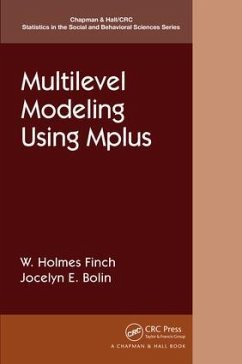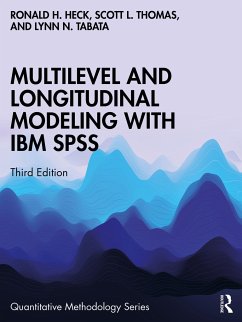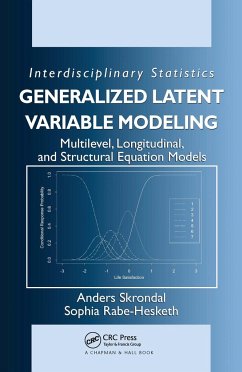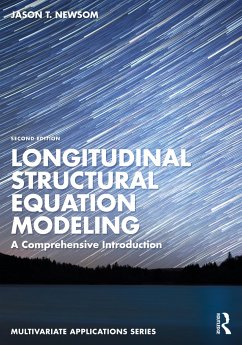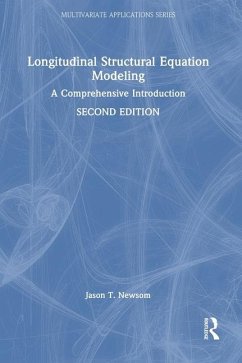
Handbook of Advanced Multilevel Analysis
Versandkostenfrei!
Versandfertig in 6-10 Tagen
101,99 €
inkl. MwSt.
Weitere Ausgaben:

PAYBACK Punkte
51 °P sammeln!
This new handbook is the definitive resource on advanced topics related to multilevel analysis. The editors assembled the top minds in the field to address the latest applications of multilevel modeling as well as the specific difficulties and methodological problems that are becoming more common as more complicated models are developed. Each chapter features examples that use actual datasets. These datasets, as well as the code to run the models, are available on the book's website http://www.hlm-online.com . Each chapter includes an introduction that sets the stage for the material to come a...
This new handbook is the definitive resource on advanced topics related to multilevel analysis. The editors assembled the top minds in the field to address the latest applications of multilevel modeling as well as the specific difficulties and methodological problems that are becoming more common as more complicated models are developed. Each chapter features examples that use actual datasets. These datasets, as well as the code to run the models, are available on the book's website http://www.hlm-online.com . Each chapter includes an introduction that sets the stage for the material to come and a conclusion.
Divided into five sections, the first provides a broad introduction to the field that serves as a framework for understanding the latter chapters. Part 2 focuses on multilevel latent variable modeling including item response theory and mixture modeling. Section 3 addresses models used for longitudinal data including growth curve and structural equation modeling. Special estimation problems are examined in section 4 including the difficulties involved in estimating survival analysis, Bayesian estimation, bootstrapping, multiple imputation, and complicated models, including generalized linear models, optimal design in multilevel models, and more. The book's concluding section focuses on statistical design issues encountered when doing multilevel modeling including nested designs, analyzing cross-classified models, and dyadic data analysis.
Intended for methodologists, statisticians, and researchers in a variety of fields including psychology, education, and the social and health sciences, this handbook also serves as an excellent text for graduate and PhD level courses in multilevel modeling. A basic knowledge of multilevel modeling is assumed.
Divided into five sections, the first provides a broad introduction to the field that serves as a framework for understanding the latter chapters. Part 2 focuses on multilevel latent variable modeling including item response theory and mixture modeling. Section 3 addresses models used for longitudinal data including growth curve and structural equation modeling. Special estimation problems are examined in section 4 including the difficulties involved in estimating survival analysis, Bayesian estimation, bootstrapping, multiple imputation, and complicated models, including generalized linear models, optimal design in multilevel models, and more. The book's concluding section focuses on statistical design issues encountered when doing multilevel modeling including nested designs, analyzing cross-classified models, and dyadic data analysis.
Intended for methodologists, statisticians, and researchers in a variety of fields including psychology, education, and the social and health sciences, this handbook also serves as an excellent text for graduate and PhD level courses in multilevel modeling. A basic knowledge of multilevel modeling is assumed.




